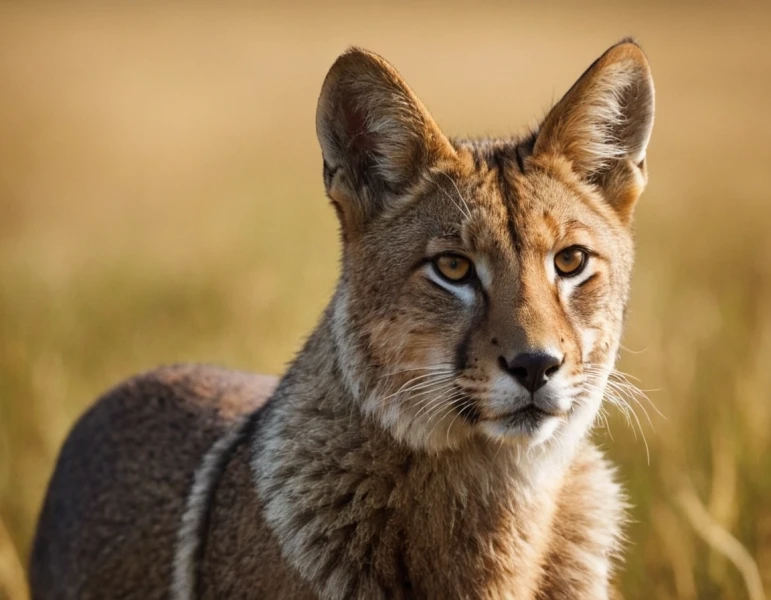Educa UNIVERSITY|HEALTH
Animal Welfare: My First Person Experience
Animal Welfare: My First Person Experience
I will be clear from the beginning: animal welfare is not a luxury, it is a necessity. I speak from experience, not from what I read in a book. Throughout my life, I have had the opportunity (and sometimes the obligation) to be in contact with animals, from dogs and cats to farm animals. And if I have learned anything, it is that respect and welfare towards them are the reflection of our humanity. I don't tell you this out of posturing, but because I lived it, studied it and practiced it.
What is animal welfare?
In a nutshell, animal welfare refers to the conditions in which animals live, ensuring that they are well treated, healthy and free from suffering. This includes factors as basic as access to food and water, to more complex aspects such as stress reduction and respect for their natural behaviors. It sounds simple! But it is not. This concept goes beyond just feeding them or providing them with a comfortable bed. It's about creating the optimal conditions in which an animal can live in dignity.

My exposure to animal welfare: You learn from mistakes
As a child, I grew up in a house where having a dog simply meant that there was an animal roaming the yard. There was no care, no attention beyond the basics. Don't get me wrong, we were not cruel, but we ignored what "welfare" really meant. That dog had no companionship, no playtime, no proper bed. We thought giving him food and a roof was enough.
How wrong we were.
Over the years, I was fortunate to learn (sometimes the hard way) that an animal's welfare is both physical and emotional. A dog needs stimulation, a cow needs room to move, a pig must be able to manifest its natural behaviors. Yes, we are talking about more than "keeping animals because they look cute", it is an ethical and moral responsibility.
Why is animal welfare important?
If I am honest, it is not only important for the animals. It's also important for us. Does that sound strange to you? Well, let me explain. According to studies, animal abuse can generate environments more prone to violence and indifference. Animal welfare, on the other hand, fosters respect, compassion and improves the mental health of people who are in contact with animals. What you do with animals speaks volumes about you.
Also, in animal husbandry, animals that live in better conditions are more productive. A less stressed cow gives better milk, a pig in the right environment fattens better, and so on. Animals that are well cared for need less medical treatment, which is not only ethical, but also economically beneficial.
The 5 freedoms of animal welfare
Now that you have a clearer idea of what this is all about, I want to share with you the five freedoms that set the standard in animal welfare:
- Freedom from hunger and thirst: Continuous access to clean water and an adequate diet.
- Freedom from physical discomfort: A suitable environment that provides them with comfort.
- Freedom from pain and illness: Prevention or timely treatment of any illness or injury.
- Freedom to express their natural behavior: Sufficient space and conditions that allow them to behave as they would in their natural environment.
- Freedom from fear and distress: Guarantee that they do not suffer psychological stress.
I repeat: These freedoms are not a whim, they are the basis of a dignified life for any living being. To ignore them is, frankly, a sign of cruelty.
My experience working with farm animals
My real "click" with animal welfare occurred on a pig farm where I worked for some years. Here there was no room for ignorance, every decision affected not only the animals, but also the humans who depended on their productivity.
At first, it was all about production: how to make animals fat fast, how to reduce costs. But then, when I learned to observe pig behavior, I realized that welfare was not a secondary issue. Pigs that had room to move and socialize were calmer, got sick less, and most surprising of all, grew faster. Here I learned that, when you treat an animal with respect, the whole system benefits. It's not magic, it's science.
The impact of new animal welfare laws
In recent years, animal welfare regulations have tightened, especially in Europe. Legislators finally understood that animal welfare is not optional, it is essential to ensure sustainability in animal food production. The new laws cover everything from transport of animals to their slaughter, with the intention of reducing stress and suffering to a minimum.
These laws also seek to give a preventive, rather than a reactive, approach. For example, in the management of stray dogs, they are betting on their population control and welfare, rather than mass euthanasia. What does this tell you? That society is evolving towards a more ethical treatment of animals.
The future of animal welfare
In closing, I want you to keep this in mind: animal welfare is not a passing fad, it is a lifelong commitment. How we treat animals is directly related to our health, our economy and our planet. And as an old friend of mine would say: "If you take care of the animals, they will take care of you."
Because, at the end of the day, animal welfare is also human welfare
.
Faculties
Trainings
The faculties embrace diverse academic disciplines and fields of study, opening doors to new perspectives and exploring different spheres of wisdom in a constantly evolving world.






